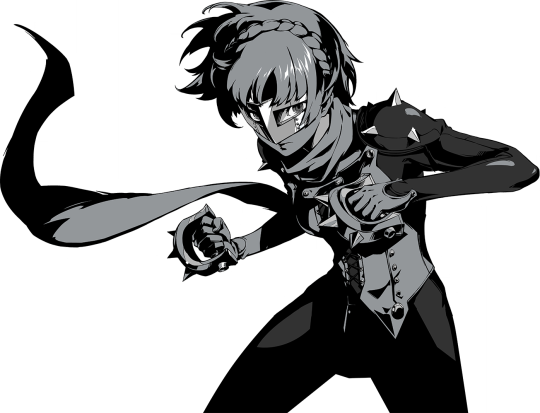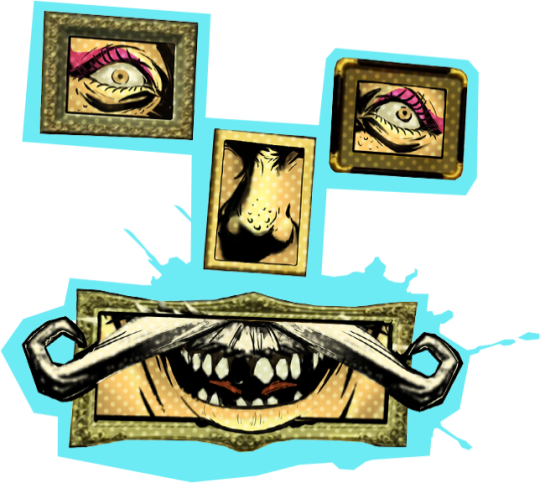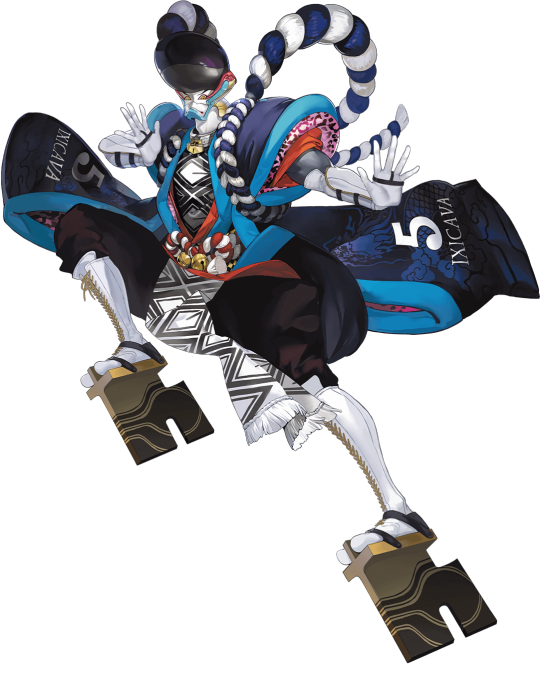#1.3.1
Explore tagged Tumblr posts
Text
Round 1 Stage 3 Poll 1


Vasselheim, Issylra: Vasselheim, also known as the Dawn City or the Cradle of Creation, is the oldest surviving city in Exandria. It is the capital of Othanzia, and is known as a major spiritual centre and the origin or headquarters of multiple religions.
image from the postcard merch by pretty useful co
Andovaar, Issylra: Andovaar is a town near Hearthdell. It has only been mentioned in passing onstream.
#exandria#andovaar#flamereach outpost#issylra#tal'dorei#taldorei#flamereach#critical role#poll post#notpollprop#exandria city showdown#round 1#1.3.1
3 notes
·
View notes
Text
Коллекция Metal Gear Solid обновлена до версии 1.3.1 (примечания к обновлению)
New Post has been published on https://dark4web.com/kollekcziya-metal-gear-solid-obnovlena-do-versii-1-3-1-primechaniya-k-obnovleniyu/
Коллекция Metal Gear Solid обновлена до версии 1.3.1 (примечания к обновлению)

Коллекция Metal Gear Solid Master не идеален, но кажется, что Konami делает все возможное, чтобы обновить коллекцию классических игр и…
0 notes
Text
me: ah, yes, 1817, the year someone tried to change the french name for potatoes
hugo: yes bUT ALSO -
me: let me stop you right there that’s all I’ll remember anyways
92 notes
·
View notes
Text
The Year 1817, as a chapter, is really so close to being a beautiful buzzfeed listicle. 87 Things Only Real 1817 Kids Remember (You Won’t Believe #38!)
56 notes
·
View notes
Text

of course you would say that vicky
50 notes
·
View notes
Text







New Yusuke and Makoto art for the second chapter of the P5 Collab, as well as the Shadow Madarame and Piggytron icons, a little Fox mask icon, and the Yusuke trophy!
#official art#yusuke kitagawa#makoto niijima#ichiryusai madarame#junya kaneshiro#open beta#version 1.3.1#version 1.3.3
103 notes
·
View notes
Text
The Year 1817 chapter of Les Mis -- where Hugo makes a ton of References to all the trivial pop culture trends and ephemera of the year 1817, which he expects to soon be 'forgotten"-- always reminds me of the Bojack Horseman flashback gags. Imagine how incoherent these would be if someone watched them 200 years from now:
youtube
20 notes
·
View notes
Text
For those who struggle reading today's wall of references, maybe audio will be more your speed! Check out this very nice reading of the chapter over at The Siecle--and enjoy the wealth of hyperlinked annotations!
19 notes
·
View notes
Text

sunrise.
#mineblr#minecraft#sunrise#mossy cobblestone#why are ocelots so hard to find?#are they even in 1.3.1?#old minecraft#is it old?#oldish minecraft
7 notes
·
View notes
Text
The Year 1817
Les Mis Letters reading club explores one chapter of Les Misérables every day. Join us on Discord, Substack - or share your thoughts right here on tumblr - today's tag is #lm 1.3.1
1817 is the year which Louis XVIII., with a certain royal assurance which was not wanting in pride, entitled the twenty-second of his reign. It is the year in which M. Bruguière de Sorsum was celebrated. All the hairdressers’ shops, hoping for powder and the return of the royal bird, were besmeared with azure and decked with fleurs-de-lys. It was the candid time at which Count Lynch sat every Sunday as church-warden in the church-warden’s pew of Saint-Germain-des-Prés, in his costume of a peer of France, with his red ribbon and his long nose and the majesty of profile peculiar to a man who has performed a brilliant action. The brilliant action performed by M. Lynch was this: being mayor of Bordeaux, on the 12th of March, 1814, he had surrendered the city a little too promptly to M. the Duke d’Angoulême. Hence his peerage. In 1817 fashion swallowed up little boys of from four to six years of age in vast caps of morocco leather with ear-tabs resembling Esquimaux mitres. The French army was dressed in white, after the mode of the Austrian; the regiments were called legions; instead of numbers they bore the names of departments; Napoleon was at St. Helena; and since England refused him green cloth, he was having his old coats turned. In 1817 Pelligrini sang; Mademoiselle Bigottini danced; Potier reigned; Odry did not yet exist. Madame Saqui had succeeded to Forioso. There were still Prussians in France. M. Delalot was a personage. Legitimacy had just asserted itself by cutting off the hand, then the head, of Pleignier, of Carbonneau, and of Tolleron. The Prince de Talleyrand, grand chamberlain, and the Abbé Louis, appointed minister of finance, laughed as they looked at each other, with the laugh of the two augurs; both of them had celebrated, on the 14th of July, 1790, the mass of federation in the Champ de Mars; Talleyrand had said it as bishop, Louis had served it in the capacity of deacon. In 1817, in the side-alleys of this same Champ de Mars, two great cylinders of wood might have been seen lying in the rain, rotting amid the grass, painted blue, with traces of eagles and bees, from which the gilding was falling. These were the columns which two years before had upheld the Emperor’s platform in the Champ de Mai. They were blackened here and there with the scorches of the bivouac of Austrians encamped near Gros-Caillou. Two or three of these columns had disappeared in these bivouac fires, and had warmed the large hands of the Imperial troops. The Field of May had this remarkable point: that it had been held in the month of June and in the Field of March (Mars). In this year, 1817, two things were popular: the Voltaire-Touquet and the snuff-box <i>à la Charter</i>. The most recent Parisian sensation was the crime of Dautun, who had thrown his brother’s head into the fountain of the Flower-Market.
They had begun to feel anxious at the Naval Department, on account of the lack of news from that fatal frigate, <i>The Medusa</i>, which was destined to cover Chaumareix with infamy and Géricault with glory. Colonel Selves was going to Egypt to become Soliman-Pasha. The palace of Thermes, in the Rue de La Harpe, served as a shop for a cooper. On the platform of the octagonal tower of the Hotel de Cluny, the little shed of boards, which had served as an observatory to Messier, the naval astronomer under Louis XVI., was still to be seen. The Duchesse de Duras read to three or four friends her unpublished <i>Ourika</i>, in her boudoir furnished by X. in sky-blue satin. The N’s were scratched off the Louvre. The bridge of Austerlitz had abdicated, and was entitled the bridge of the King’s Garden [du Jardin du Roi], a double enigma, which disguised the bridge of Austerlitz and the Jardin des Plantes at one stroke. Louis XVIII., much preoccupied while annotating Horace with the corner of his finger-nail, heroes who have become emperors, and makers of wooden shoes who have become dauphins, had two anxieties,—Napoleon and Mathurin Bruneau. The French Academy had given for its prize subject, <i>The Happiness procured through Study</i>. M. Bellart was officially eloquent. In his shadow could be seen germinating that future advocate-general of Broë, dedicated to the sarcasms of Paul-Louis Courier. There was a false Chateaubriand, named Marchangy, in the interim, until there should be a false Marchangy, named d’Arlincourt. <i>Claire d’Albe</i> and <i>Malek-Adel</i> were masterpieces; Madame Cottin was proclaimed the chief writer of the epoch. The Institute had the academician, Napoleon Bonaparte, stricken from its list of members. A royal ordinance erected Angoulême into a naval school; for the Duc d’Angoulême, being lord high admiral, it was evident that the city of Angoulême had all the qualities of a seaport; otherwise the monarchical principle would have received a wound. In the Council of Ministers the question was agitated whether vignettes representing slack-rope performances, which adorned Franconi’s advertising posters, and which attracted throngs of street urchins, should be tolerated. M. Paër, the author of <i>Agnese</i>, a good sort of fellow, with a square face and a wart on his cheek, directed the little private concerts of the Marquise de Sasenaye in the Rue Ville l’Évêque. All the young girls were singing the <i>Hermit of Saint-Avelle</i>, with words by Edmond Géraud. <i>The Yellow Dwarf</i> was transferred into <i>Mirror</i>. The Café Lemblin stood up for the Emperor, against the Café Valois, which upheld the Bourbons. The Duc de Berri, already surveyed from the shadow by Louvel, had just been married to a princess of Sicily. Madame de Staël had died a year previously. The body-guard hissed Mademoiselle Mars. The grand newspapers were all very small. Their form was restricted, but their liberty was great. The <i>Constitutionnel</i> was constitutional. <i>La Minerve</i> called Chateaubriand <i>Chateaubriant</i>. That <i>t</i> made the good middle-class people laugh heartily at the expense of the great writer. In journals which sold themselves, prostituted journalists, insulted the exiles of 1815. David had no longer any talent, Arnault had no longer any wit, Carnot was no longer honest, Soult had won no battles; it is true that Napoleon had no longer any genius. No one is ignorant of the fact that letters sent to an exile by post very rarely reached him, as the police made it their religious duty to intercept them. This is no new fact; Descartes complained of it in his exile. Now David, having, in a Belgian publication, shown some displeasure at not receiving letters which had been written to him, it struck the royalist journals as amusing; and they derided the prescribed man well on this occasion. What separated two men more than an abyss was to say, the <i>regicides</i>, or to say the <i>voters</i>; to say the <i>enemies</i>, or to say the <i>allies</i>; to say <i>Napoleon</i>, or to say <i>Buonaparte</i>.
All sensible people were agreed that the era of revolution had been closed forever by King Louis XVIII., surnamed “The Immortal Author of the Charter.” On the platform of the Pont-Neuf, the word <i>Redivivus</i> was carved on the pedestal that awaited the statue of Henry IV. M. Piet, in the Rue Thérèse, No. 4, was making the rough draft of his privy assembly to consolidate the monarchy. The leaders of the Right said at grave conjunctures, “We must write to Bacot.” MM. Canuel, O’Mahoney, and De Chappedelaine were preparing the sketch, to some extent with Monsieur’s approval, of what was to become later on “The Conspiracy of the Bord de l’Eau”—of the waterside. L’Épingle Noire was already plotting in his own quarter. Delaverderie was conferring with Trogoff. M. Decazes, who was liberal to a degree, reigned. Chateaubriand stood every morning at his window at No. 27 Rue Saint-Dominique, clad in footed trousers, and slippers, with a madras kerchief knotted over his gray hair, with his eyes fixed on a mirror, a complete set of dentist’s instruments spread out before him, cleaning his teeth, which were charming, while he dictated <i>The Monarchy according to the Charter</i> to M. Pilorge, his secretary. Criticism, assuming an authoritative tone, preferred Lafon to Talma. M. de Féletez signed himself A.; M. Hoffmann signed himself Z. Charles Nodier wrote <i>Thérèse Aubert</i>.Divorce was abolished. Lyceums called themselves colleges. The collegians, decorated on the collar with a golden fleur-de-lys, fought each other <i>apropos</i> of the King of Rome. The counter-police of the château had denounced to her Royal Highness Madame, the portrait, everywhere exhibited, of M. the Duc d’Orléans, who made a better appearance in his uniform of a colonel-general of hussars than M. the Duc de Berri, in his uniform of colonel-general of dragoons—a serious inconvenience. The city of Paris was having the dome of the Invalides regilded at its own expense. Serious men asked themselves what M. de Trinquelague would do on such or such an occasion; M. Clausel de Montals differed on divers points from M. Clausel de Coussergues; M. de Salaberry was not satisfied. The comedian Picard, who belonged to the Academy, which the comedian Molière had not been able to do, had <i>The Two Philiberts</i> played at the Odéon, upon whose pediment the removal of the letters still allowed THEATRE OF THE EMPRESS to be plainly read. People took part for or against Cugnet de Montarlot. Fabvier was factious; Bavoux was revolutionary. The Liberal, Pélicier, published an edition of Voltaire, with the following title: <i>Works of Voltaire</i>, of the French Academy. “That will attract purchasers,” said the ingenious editor. The general opinion was that M. Charles Loyson would be the genius of the century; envy was beginning to gnaw at him—a sign of glory; and this verse was composed on him:—
“Even when Loyson steals, one feels that he has paws.”
As Cardinal Fesch refused to resign, M. de Pins, Archbishop of Amasie, administered the diocese of Lyons. The quarrel over the valley of Dappes was begun between Switzerland and France by a memoir from Captain, afterwards General Dufour. Saint-Simon, ignored, was erecting his sublime dream. There was a celebrated Fourier at the Academy of Science, whom posterity has forgotten; and in some garret an obscure Fourier, whom the future will recall. Lord Byron was beginning to make his mark; a note to a poem by Millevoye introduced him to France in these terms: <i>a certain Lord Baron</i>. David d’Angers was trying to work in marble. The Abbé Caron was speaking, in terms of praise, to a private gathering of seminarists in the blind alley of Feuillantines, of an unknown priest, named Félicité-Robert, who, at a latter date, became Lamennais. A thing which smoked and clattered on the Seine with the noise of a swimming dog went and came beneath the windows of the Tuileries, from the Pont Royal to the Pont Louis XV.; it was a piece of mechanism which was not good for much; a sort of plaything, the idle dream of a dream-ridden inventor; an utopia—a steamboat. The Parisians stared indifferently at this useless thing. M. de Vaublanc, the reformer of the Institute by a coup d’état, the distinguished author of numerous academicians, ordinances, and batches of members, after having created them, could not succeed in becoming one himself. The Faubourg Saint-Germain and the pavilion de Marsan wished to have M. Delaveau for prefect of police, on account of his piety. Dupuytren and Récamier entered into a quarrel in the amphitheatre of the School of Medicine, and threatened each other with their fists on the subject of the divinity of Jesus Christ. Cuvier, with one eye on Genesis and the other on nature, tried to please bigoted reaction by reconciling fossils with texts and by making mastodons flatter Moses.
M. François de Neufchâteau, the praiseworthy cultivator of the memory of Parmentier, made a thousand efforts to have <i>pomme de terre</i> [potato] pronounced <i>parmentière</i>, and succeeded therein not at all. The Abbé Grégoire, ex-bishop, ex-conventionary, ex-senator, had passed, in the royalist polemics, to the state of “Infamous Grégoire.” The locution of which we have made use—<i>passed to the state of</i>—has been condemned as a neologism by M. Royer Collard. Under the third arch of the Pont de Jéna, the new stone with which, the two years previously, the mining aperture made by Blücher to blow up the bridge had been stopped up, was still recognizable on account of its whiteness. Justice summoned to its bar a man who, on seeing the Comte d’Artois enter Notre Dame, had said aloud: <i>“Sapristi! I regret the time when I saw Bonaparte and Talma enter the Bel Sauvage, arm in arm.”</i> A seditious utterance. Six months in prison. Traitors showed themselves unbuttoned; men who had gone over to the enemy on the eve of battle made no secret of their recompense, and strutted immodestly in the light of day, in the cynicism of riches and dignities; deserters from Ligny and Quatre-Bras, in the brazenness of their well-paid turpitude, exhibited their devotion to the monarchy in the most barefaced manner.
This is what floats up confusedly, pell-mell, for the year 1817, and is now forgotten. History neglects nearly all these particulars, and cannot do otherwise; the infinity would overwhelm it. Nevertheless, these details, which are wrongly called trivial,—there are no trivial facts in humanity, nor little leaves in vegetation,—are useful. It is of the physiognomy of the years that the physiognomy of the centuries is composed. In this year of 1817 four young Parisians arranged “a fine farce.”
12 notes
·
View notes
Text
Round 1, Matchup 28: I.iii vs I.iii.1
7 notes
·
View notes
Text
While reading this tableau of everything and everyone in Paris around 1817, a feeling stirred within me, reminding me of something. Then it hit me—I teach a course on the theory of history, and when discussing postmodern or deconstructionist history, we explore Gumbrecht’s “In 1926,” an example of experimental history writing. Gumbrecht crafted a book that allows readers to start from any part, lacking a conventional beginning and end. His aim was to immerse the reader in 1926, presenting short chapters about various aspects of life during that year.
It appears that Hugo was innovative and postmodernist even before postmodernism was coined. Although his portrayal of 1817 focuses more on political and cultural life than on social and economic aspects, it serves the purpose of conveying an impression of what was happening around that time. The challenge lies in the fact that many of the names mentioned may fly over the heads of modern readers. Even I had to consult some of Donougher’s notes. I can imagine the difficulties faced by those without a historical background.
25 notes
·
View notes
Text


Fox in P5X
(last updated 7/4/25!)
Yusuke Kitagawa is primarily present as a Phantom Idol, or cognitive teammate. He has not yet made any appearance in the main story, outside of his lines during the Sae Palace escape intro cutscene.


In the P5 Collab’s Museum Chapter, Wonder's group runs into trouble shortly after entering the museum, but is rescued by Fox and Panther. Fox quickly bonds with Soy, after Fox mentions that he hasn't really eaten all day, and Soy promises to make him some ramen once they get out of the Metaverse.
He's very open about his backstory with Madarame, and is generally one of the first to point out distinct similarities and differences between the museum and Madarame's Palace. He also tends to take the direct approach as far as their plans go, including being in favor of just stepping through the infrared security lasers to steal what they think is the Core, and later suggesting they go right into attacking the guard of the real Core.
Yusuke can also be found in Leblanc in the real world, which Wonder is for some reason capable of crossing worlds to visit. He won’t appear until Wonder has been rescued by him and Panther in the Museum Chapter, but seems to have been looking forward to meeting him when they are eventually at Leblanc at the same time, and asks to draw him. Yusuke otherwise tends to talk about his art (and food, or lack thereof).

Fox’s Persona Goemon is categorized as an Ice type, and resists Ice while being weak to Fire.
Goemon is a Sweeper Persona, meaning he’s good at dealing with groups of enemies, and his trait gives him a chance to counterattack whenever he takes damage. His first ice attack skill hits all enemies and is guaranteed to freeze one; his second ice attack skill deals five hits to random enemies, prioritizing those that haven't been hit yet (doing less damage with each subsequent hit to the same enemy), and does more damage if Fox is shielded; and his support skill guarantees he will counter the next attack to hit him (or he will counter at the end of the round automatically anyway), while also strengthening his counter and making it hit all enemies instead of just the one that attacked. Yusuke also gets a shield, and temporarily stops being weak to fire, becomes immune to mental status effects, and taunts all enemies for the duration of this skill. His passive skills cause shields to boost his damage, and increase his ability to penetrate enemy shields whenever he gives himself a shield.
As in P5, his melee weapon is a katana, while his ranged weapon is an assault rifle. His Highlight is shown from 1:05-1:17 in this video, and it hits all enemies with an ice attack, and boosts Fox's chance of counterattacking.
His recommended card sets are 1) 4 of Cups (Luxury) + Page of Coins (Growth), 2) 2 of Swords (Peace) + Page of Wands (Acceptance).
The game recommends teaming him up with 1) Yuki and Puppet, 2) Rin, 3) Mont.
20 notes
·
View notes